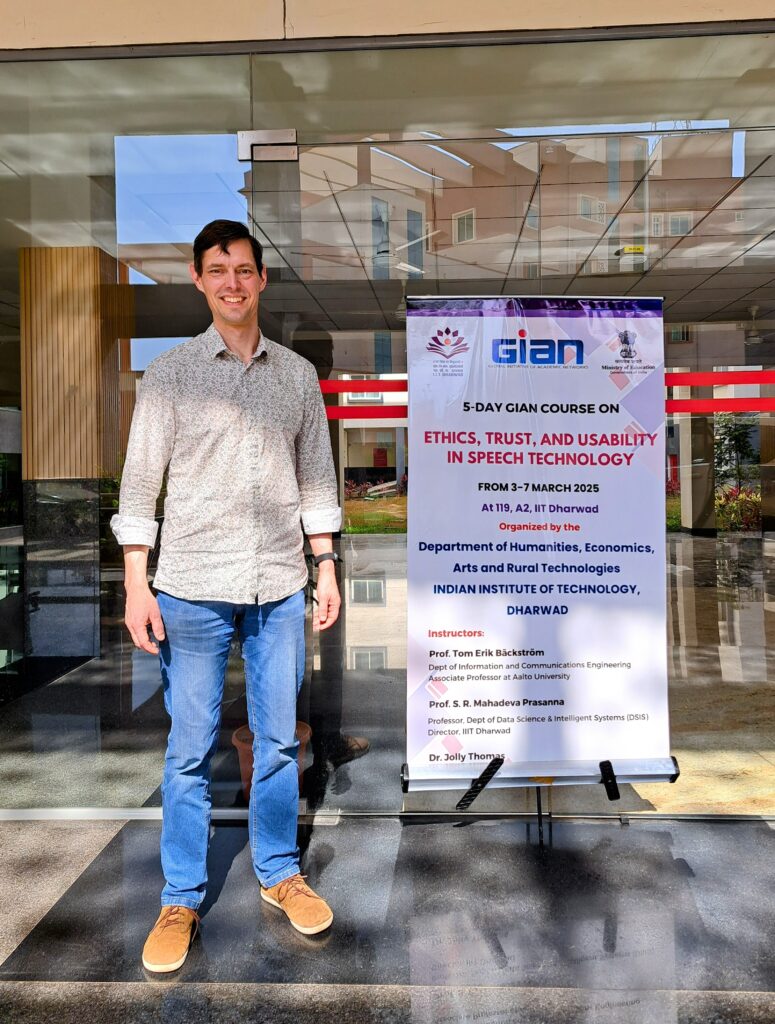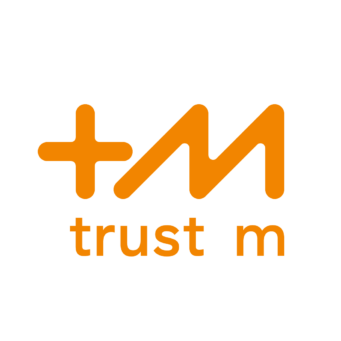By: Tom Bäckström

“In relationships without knowledge, there is no trust, and thus only “faith” is possible”. This was the most exciting thing I learned from the students taking part in the course titled ”Ethics, Trust, and Usability in Speech Technology” that I had the pleasure of teaching in India this spring.
In the state of Karnataka, southwestern India, the city of Dharwad offers a growing center of industry and academic environment. In collaboration with Prof. Jolly Thomas from IIT Dharwad, the course was designed to inspire students through an immersive and dialogical format.
Our primary aim was to establish an interdisciplinary dialogue guided by presentations, encouraging participants to think critically and broaden their perspectives. Students represented mainly two fields: engineering and philosophy. While these disciplines may seem distinct, the intersectional approach opened innovative discussions highlighting how ethical considerations and usability aspects intertwine in technological development.
I was excited by the enthusiasm of the students to engage in discussions about the ethical implications of speech technology. Reaching this level of engagement requires both careful planning of the teaching methods, but also willingness of students to step outside their comfort zone. These shared open spaces for discussion are the best way for shared learning of ethically oriented topics not only for the students but also for me.
Of the things I learned or understood during the course, two examples spring to mind. First, I have always viewed “trust” as a fusion of emotion and logic that happens in a relationship where we have access to partial knowledge of someone. If we had full knowledge, we would not need trust and in the complete absence of knowledge, we have no basis to form a relationship of trust. During the course, from the students I learned that in relationships without knowledge, only “faith” is possible.
Though naming the absence of knowledge and trust as faith may seem a minor step, it connects with a large system of thought that can enrich our understanding of trust as well. Trust is not faith but logical action with incomplete information.
A second semantic relationship that I realized is what I came to call “chains of trust”. Where we usually discuss trust between individual entities, it seems obvious that often they are linked; programmers trust their own code, project leads trust programmers, management trusts project leads, customers (can) trust the company etc. In fact, we could more accurately talk of networks of trust and inherited trust.
The trip was funded by the Indian government’s GIAN program at the Indian Institute of Technology (IIT) Dharwad, a young but prestigious institution. Partnering with IIT Dharwad provided an opportunity to discuss the interdisciplinary nature of speech technology—an area where engineering meets philosophical inquiry, creating fertile ground for deep, meaningful exploration.
In all, my visit to IIT Dharwad was an inspiring detour from daily routine. I am grateful to the organizers for the warm welcome and to the students for their eagerness to participate. Thank you!
